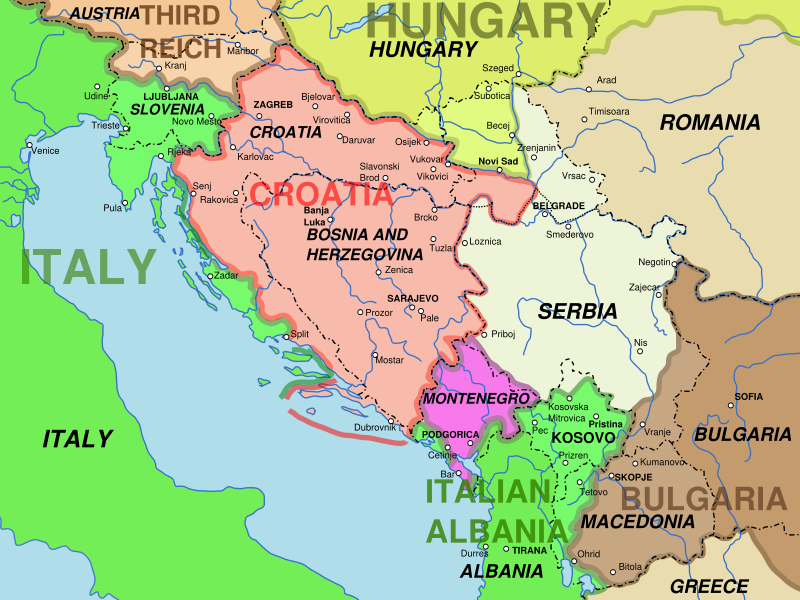The European Commission has unveiled a substantial €3.2 billion investment package to support 21 transport, digital, climate and energy connectivity projects in the Western Balkans. This is the first major package of projects under the EU’s ambitious Economic and Investment Plan for the Western Balkans, which the Commission adopted in October 2020. The projects are designed to bring tangible benefits to all six partners in the region.
Over the next years, the Economic and Investment Plan is set to mobilize up to €30bn of investments, as a combination of grants, preferential loans and guarantees. The Plan will help close the development gap between the European Union and the region and support the post-pandemic economic recovery. The Plan will also help to deliver the broader EU Global Gateway strategy, launched in December 2021.
Neighbourhood and Enlargement Commissioner Olivér Várhelyi said: “With this major investment package we are accelerating the delivery of the Economic and Investment Plan for the Western Balkans on the ground. We have identified these flagship projects in close cooperation with our partners. Better and more sustainable connections in transport, digital infrastructure and renewable energy will boost the economy, drive the green and digital transition of the region and bring a host of opportunities for people and businesses in the Western Balkans and across the EU. These investments will also speed up the integration of the region, in line with its clear European perspective.”
The financial package includes €1.1bn in EU grants from the Instrument for Pre-Accession Assistance 2021-2027 (IPA III), additional bilateral contributions from EU Member States and Norway, and favourable loans from international financing institutions. The €3.2 billion investment package is channelled through the Western Balkans Investment Framework (WBIF) – an EU-led multi-donor investment platform and the primary financial vehicle for implementing the Economic and Investment Plan in the areas of public infrastructure and private sector competitiveness.
The projects in this first package cover the Plan’s priority sectors:
- Sustainable transport: Construction of major road and railway connections[1] in the region, including the Mediterranean, East-West, and Rhine-Danube corridors and the rail corridor between Skopje in North Macedonia and the Bulgarian border. These projects will facilitate regional trade, reduce travel times and spur sustainable economic growth, bringing great benefits for local citizens and businesses in the region.
- Clean energy: Development of renewable energy sources with the construction of solar power plants and the Trans-Balkan Electricity Transmission Corridor, which will be instrumental for a successful clean energy transition in the region and will contribute to phasing-out of coal use.
- Environment & climate: Construction of wastewater treatment plants, which are essential for the green perspectives of the region, and will help to safeguard the health and welfare of the people in the Western Balkans.
- Digital: Development of rural broadband infrastructure to ensure universal access across the Western Balkans.
- Human development:Construction of a new building of a university children’s hospital to increase its capacity and to include new diagnostic and treatment technologies.
Implementation will start soon after signing agreements with international financial institutions, expected during 2022 and 2023.
Background
The Economic and Investment Plan for the Western Balkans aims to spur the long-term recovery, accelerate a green and digital transition, as well as foster regional cooperation and convergence with the EU. Up to €9 billion in EU grants from IPA III is allocated for the Plan, which will mobilise an additional €20bn of investments.
The Western Balkans Investment Framework (WBIF) is a joint financial platform of the European Commission, financial organisations, EU member states and Norway aimed at enhancing co-operation in public and private sectors investments for the region’s socio-economic development, and contributing to the European integration of the Western Balkans. The WBIF is the primary financial vehicle for implementing the EU’s ambitious Economic and Investment Plan for the Western Balkans policy priorities and investment flagships.
Global Gateway is the EU’s contribution to narrowing the global investment gap worldwide in support of sustainable development. With this strategy, the EU is stepping up its offer to its partners with major investments in infrastructure development around the world. Over the next seven years, the EU and its member States will mobilise up to €300 billion in public and private investments in the digital, climate and energy, transport, health, education and research sectors. The Global Gateway will deliver sustainable and high-quality projects, taking into account the needs of partner countries and ensuring lasting benefits for local communities.
More information
Economic and Investment Plan for the Western Balkans
Factsheet – summary of project packag
WBIF project bookle
Western Balkans Investment Framework (WBIF)The Instrument for Pre-accession Assistance (IPA III)
Factsheet – Instrument for Pre-accession Assistance factsheet (IPA III
Global Gateway
[1] The package announced includes the investment projects submitted by Bosnia and Herzegovina, of which two are on the territory of Republika Srpska for road and rail connections along Corridor Vc. The Commission intends to sign the respective contribution agreements for these two investments, worth €600 million, only after the return to the full functioning of state institutions.
Share this article:


























